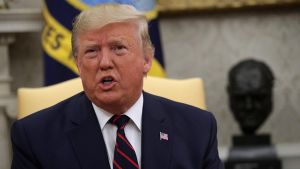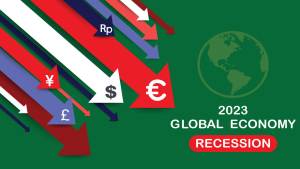Deciding is easy when dictators are not in the picture. Leaders from the European Union realised this when they met in Brussels on December 14th. They were meeting to decide on sending a €50bn aid package to Ukraine and admitting it into the Union. The aid works out to 55bn American dollars or 43bn British pounds. In the end, leaders from the Union returned home disappointed. Perhaps more than Ukraine.
The Danger of Scuttling the Summit
Disappointment because Viktor Orban, prime minister of Hungary, had used his veto to block the decisions. The dictator was holding the Union to ransom. Nothing short of blackmailing, he was throwing his weight around to ensure Ukraine was not aided. In a typical show of gaslighting, he was in fact accusing the European Union of playing power games. As Mr Orban turned into a cause of major European concern, it was an unusually worrisome scene.
European leaders were worried more because Mr Orban is a known sympathiser of Russian president Vladimir Putin, a similar dictator and an aggressor in Ukraine. They knew Mr Orban is Mr Putin’s dearest ally in Europe. They couldn’t forget Mr Orban was the only leader from the European Union to meet the Russian dictator this year. Their fears were rising. The danger of Mr Orban now scuttling the summit seemed real.
A Rare Show of Unity in Discord
Undaunted, European leaders were prepared to sweat it out. They were hardening themselves for a prolonged summit and tough negotiations. They were ready to face the Hungarian and the Russian challenges. Though bristling at Mr Orban’s threats, leaders from the European Union seemed determined to stand by Europeans in general and Ukrainians in particular. It was a rare show of unity in a world of discord.
Leaders from the European Union were getting set to play long. Their unity against Orban the Stonewaller was evident in the voting score. When the negotiations over Ukraine’s admission and aid hit a roadblock, it was 26 to one. Germany tried to save the situation by suggesting, in private, to Mr Orban that he should take a coffee-break. There was relief among other summiteers when the Hungarian Wall moved away voluntarily.
Exhibiting a Sour-Grape Syndrome
This made a unanimous vote possible. Which was essential for a decision like admitting a European nation into the Union. Had Mr Orban stayed back, this unanimity would have been impossible. Clearly, not only leaders from the European Union were elated, even scribes covering the summit turned euphoric. Even Charles Michel, president of the European Council, wasn’t able to hide his ecstasy.
Despite the euphoria across the board, a miffed Orban went on to make a negative comment on social media. Exhibiting a sour-grape syndrome, he was trashing the summit. He called the decision as “completely senseless, irrational and wrong”. Global politicos see this as plain double-speak. Particularly because he let the summit proceed to make decisions despite his open discontent. What was he trying to tell the world?
Mr Orban even had an answer for that question. He said he did try to convince all the leaders from the European Union. Yet, he had to let them have their way finally as they were desperate for a decision. The logic was puerile at best. However, to a keen observer, it may not be so. As membership of the Union usually takes years to fructify, Mr Orban was only confident that he had lot more time on his hands before he could block Ukraine’s entry again, somewhere down the line.
Slammed for Taking Europe Hostage
Good luck for Mr Orban, he got that opportunity right there and then. Talks collapsed around 02:30 in the morning. This happened after Mr Orban had used his veto to block the aid package to Ukraine. So audacious it was that leaders from the European Union did not hesitate to call his action as being not European. Some of them even slammed him for taking “European progress hostage” irresponsibly.
A thick-skinned Orban was unhurt. His political director defended his boss by saying it was the European Union that was blackmailing Hungary. In a show of characteristic chutzpah, the director put down a condition for Mr Orban’s cooperation in lifting the blockade. He wanted the Union to unblock Hungary’s funds adding up to €20bn. These funds were frozen earlier due to concerns over human-rights abuses during Mr Orban’s reign.
Without Dipping into the Kitty
This is fighting Orban style: block for the blocking and unblock only after unblocking. Leaders from the European Union are now busy working out ways to bypass Mr Orban. They plan to explore alternative methods for releasing financial aid to Ukraine. They are even toying with the idea of employing hardcore persuasion to make Mr Orban fall in line. Or, even use his allies to route the aid package to Ukraine.
In a worst-case scenario, the European Union leaders are planning to take the sting out of Mr Orban’s Hungarian veto. The idea is to allow all the members of the Union, other than Hungary, to aid Ukraine in their individual capacities. That is aid Ukraine without dipping into the European Union kitty. This is easy, can be done without the Union’s procedural hassles and cannot be vetoed by Mr Orban.
The Poliphoon’s Last Word
The Hungarian dictator may argue that his country is not the first member of the Union to block aid. He may contend that financial aids by the Union are often caught in political crossfires. But, frustrating the efforts of the Union and its members to aid a wrongly-invaded nation is unjustified. The European Union’s resolve to stand by Ukraine deserves absolute backing. Orban or no Orban.










